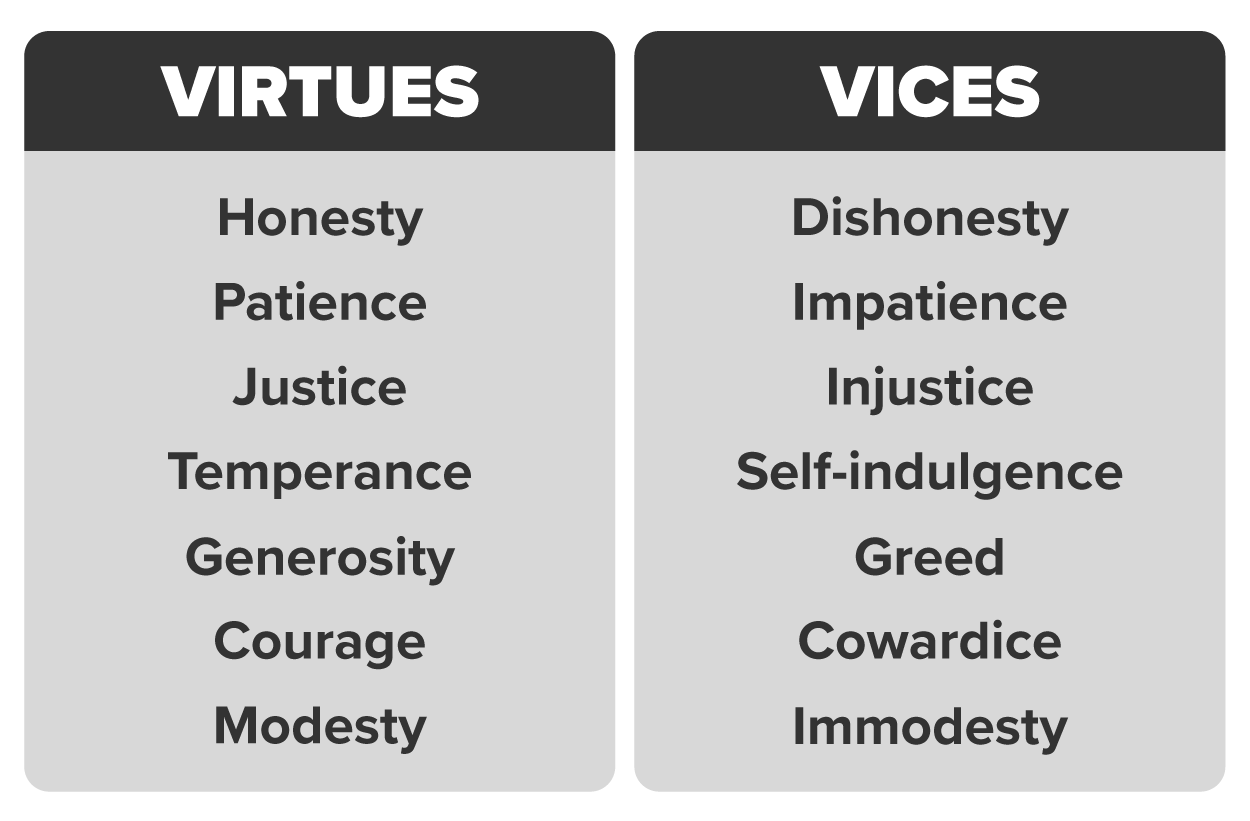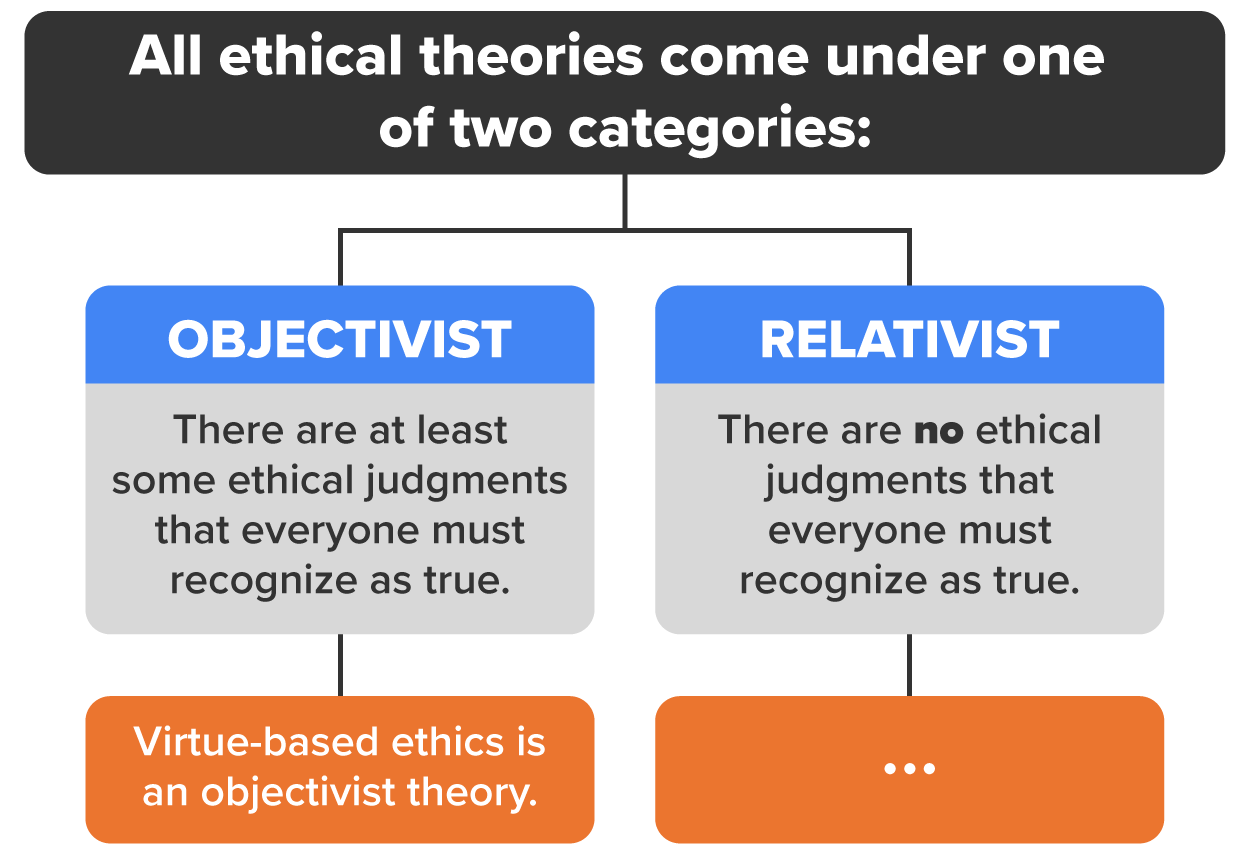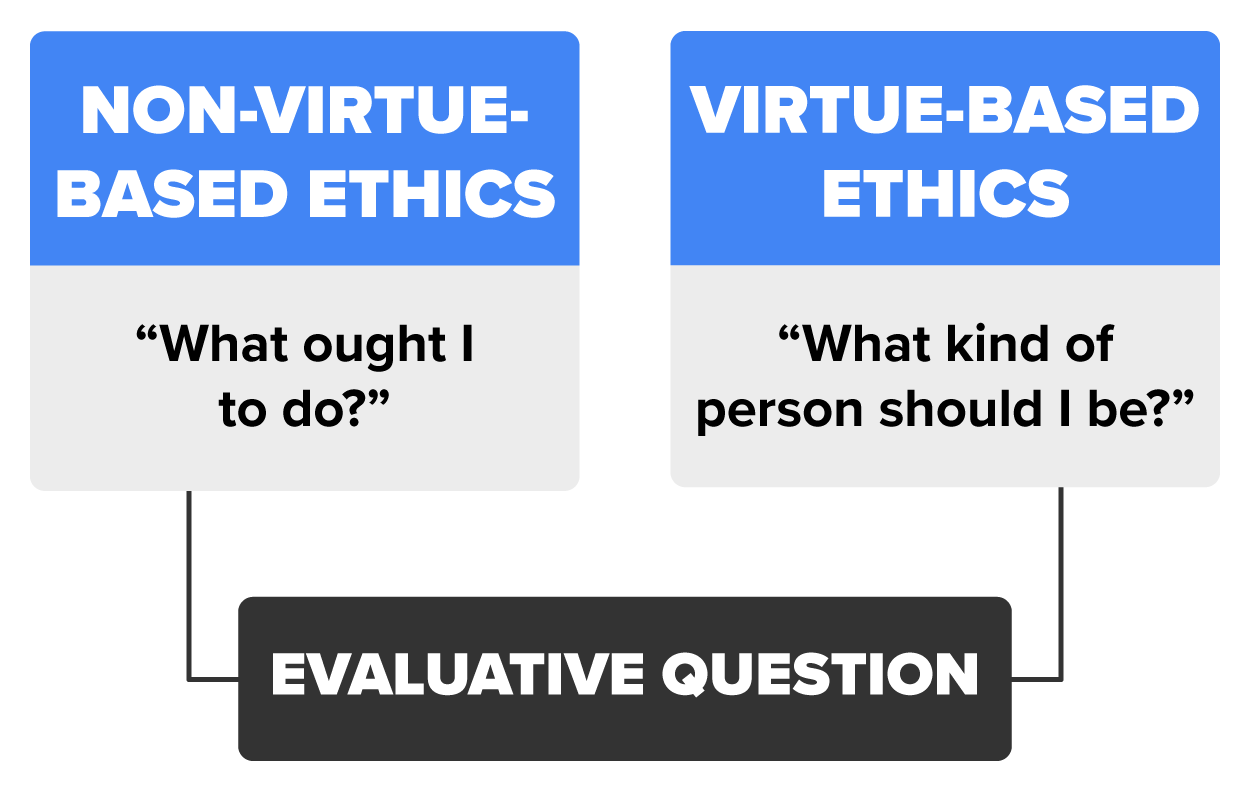Table of Contents |
To begin with, recall that ethics is the branch of philosophy that analyzes and defends concepts of value, and thus seeks to determine right and wrong. Ethics can evaluate actions in lots of different ways. For instance, it can evaluate the consequences of an action, or it can evaluate its intention instead. However, virtue-based ethics specifically evaluates an action in terms of its relation to the kind of person someone is.
There are a lot of ways that the kind of person you are affects, or is affected by, your actions.
EXAMPLE
If you talk to everyone you meet, this could reveal that you have an outgoing personality and that this trait is a strength of yours. But we could also say that forcing yourself to take part in social situations could encourage you to become more outgoing.So, actions can express or reinforce your character, but they can also develop it.
Virtue-based ethics tends to split up character traits into those that are considered morally desirable, and those that are not. The former are called virtues, and the latter are called vices. Here are samples of both.

Philosophers who advance virtue-based ethics usually claim that everyone should try to cultivate virtues and avoid vices. This tells you what type of ethical theory this is.

Ethical theories can evaluate an agent’s actions and the character of the agent. Some theories, such as utilitarianism and deontology, make actions the primary object of evaluation. In these cases, the person's character is only seen in light of their actions. Therefore, a person's character is secondary in these theories.
By contrast, virtue-based ethics makes character the primary object of evaluation. Here, actions are understood in terms of how they impact the agent's character.
EXAMPLE
If you saw someone drinking excessively, you could see this as a sign of that person's character, namely intemperance or self-indulgence.You would also evaluate actions in terms of how they encourage certain virtues or discourage certain vices.
IN CONTEXT
If a naturally shy person made an effort to take up public speaking any opportunity they got, you would see this as a good action because it’s an attempt to overcome the vice of excessive shyness or bashfulness.
But if someone was already very confident, speaking publicly all the time might be seen as a sign of arrogance. In this case, the action is bad because it encourages the vice of arrogance.
Because of this emphasis on character, the kind of question you would ask yourself is different than the kind that you would ask yourself if you were primarily concerned with evaluating actions.
